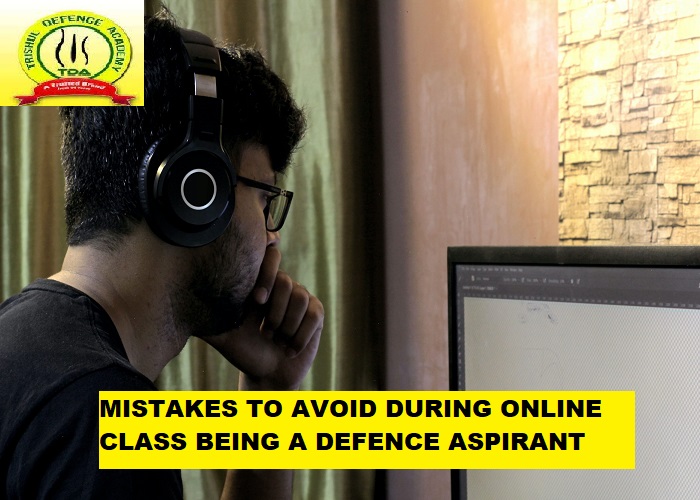Mistakes To Avoid During Online Class : In the aftermath of COVID-19, higher education institutions all over the world are shifting to remote learning environments. All high schools, community and technical colleges, universities, as well as coaching institutes, are now offering courses or even whole degrees online. Defence aspirants, like other stream students, have moved to online coaching, and those who are new to this procedure make mistakes during an online class. We will discuss Mistakes to Avoid During Online classes in this blog.
Mistakes To Avoid During Online Class : Lack of research before enrolling
Students can use research to find the appropriate training to help them achieve their goals of learning a new skill, getting a job in the future, or moulding the future. Research enables learners to find suitable coaching based on their interests, the availability of career options, the teaching method, and the availability of funds. Individuals must obtain sufficient information about the coaching, its content, ratings, online and offline reviews, and news stories and blogs before enlisting in order to ensure that their learning objectives are met effectively.
Not making notes
Interruptions in the form of messages, calls, and notifications are unavoidable when learning through digital devices. Students should consider taking notes while watching videos, tutorials, documents, PDFs, or presentations to help them focus and remember things. Students generally think more deeply, process more details, identify more doubts and questions, improve their memory, and increase their creativity when they write. When rewriting, students can easily refer to these notes to find key aspects rather than rewatching the entire video lessons, saving time and increasing productivity.
Hesitating in asking questions
In a physical classroom, many students find it embarrassing to ask any questions. Online learning, on the other hand, solves this problem as well. Students can ask doubts while learning online, which makes sure confidentiality and allows students to get skillful solutions quickly. Students who ask more questions usually have a strong interest in the subject, are actively engaged in their learning, recognise and correct their own flaws, challenge themselves to learn more effectively, and develop critical thinking skills necessary for a successful future.
CAPF Full Form In Detail
Less focus on assignments and projects
Online learning includes quizzes, challenges, activities, coursework, and projects to fill the gap between students’ theoretical and practical understanding of the topic. The majority of online training platforms do not require completion. Assignments or projects that allow students to learn in a flexible manner. Students must, however, establish a schedule and finish assignments on time as these aid in the advancement of cognitive, perceptive, problem-solving, planning, organising, time management, and a variety of other smooth and domain skills.
Assignments also require students to pay attention to their surroundings, come up with some ideas, apply actual examples, conduct extensive research, and improve their understanding of the subject.
Not taking dedicated breaks
Overexposure to the laptop or mobile screen without interruption may result in a loss of involvement and focus. Learners may also experience mental or physical health concerns such as eye problems, headaches, or body pain.
It is critical to include dedicated break time in the learning routine and to use those breaks fruitfully in order to improve attention and focus. Exercises, going for a walk, cleaning up, meditation, speaking to relatives, listening to music, or playing rapid board games are a few beneficial activities that can be done during a study break to feel refreshed and energised.
Things, like watching TV or a series, playing computer games, eating large meals, and being completely reliant on junk food and excessive caffeine, should be avoided because these unhealthy behaviours disassociate people from knowing and make them much lazier.



